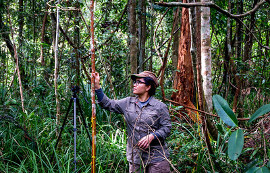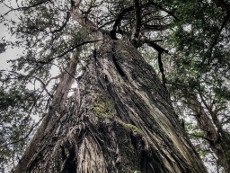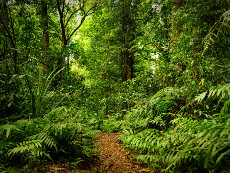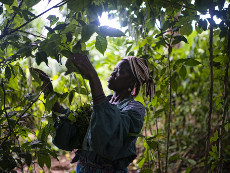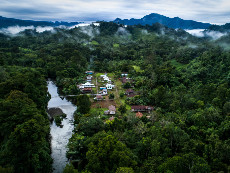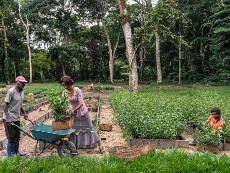Replication Data for: International dataset on REDD+ projects 2020 with supplementary data on carbon accounting
The dataset was developed in 2021 by combining two sources of data: (1) selected variables from publicly available data in the international REDD+ project database v.4.1 (ID-RECCO), available from reddprojectsdatabase.org (Simonet G., Atmadja, S., Agrawal A., Bénédet F., Cromberg M., de Perthuis C., Haggard D., Jansen N., Karsenty A., Liang W., Morel, A., Newton P., Sales A-M, Satwika, A., Schaap B., Seyller C., Silviana, V., Vaillant G., (2020) ID-RECCO, International Database on REDD+ projects and programs: Linking Economics, Carbon and Communities. version 4.1 https://www.reddprojectsdatabase.org)
View more REDD+ Country Profiles Indicators
The purpose of the country profile is to provide an overview of the contextual conditions that affect the REDD+ policy environment in a specific country, along with a preliminary 3E (effective, efficient and equitable) assessment of the REDD+ proposals for that country. The profile is compiled based on reviews of existing literature, national and international data and reviews of legislation and policies, as well as selected expert interviews.
View more Women’s dataset of the Global Comparative Study on REDD+ (GCS REDD+) Module 2
The Women’s dataset corresponds to the women’s questionnaire, which has three main goals. First, it is an instrument that enables women to have a voice as respondents in GCS REDD+. Second, it is a way to obtain data that are specific to the experience and knowledge of women in the study villages. Third, it supplies information that compares the livelihood activities and outlooks of women and men in the study villages. The Women’s Questionnaire is composed of four main sections: 1. Women’s livelihoods in the village and change over time; and tenure; 2. women’s participation in village and household decisions; 3. perception of changes in women’s well-being; 4. women’s involvement in and assessment of forest interventions. The Women’s Questionnaire was applied through focus group interviews with around 10 women, aged 16 and older, who represent all (or the vast majority) of the different types of women’s livelihoods in the village.
View more Village dataset of the Global Comparative Study on REDD+ (GCS REDD+) Module 2
The Village dataset corresponds to the village questionnaire, which is divided into 10 main sections: 1. Basic information on demography, settlement, and infrastructure; 2. Village institutions and forest use regulations and rules; 3. Wages and prices; 4. Development projects/income to village (Phase 1 only); 5. Village land tenure and use; 6. Basic information on livelihoods in the village and change over time; 7. Change in forest area, quality, and use; 8. Views on tenure security over agricultural and forest resources; 9. Perceptions on changes in wellbeing; and, 10. Involvement in and assessment of forest interventions. Information sources for this questionnaire are secondary data, own observations and interviews with key informants for sections 1 to 5, and village meetings (or focus groups) that consist of 10–15 adults (>16 years of age) for sections 5 to 10.
View more Household dataset of the Global Comparative Study on REDD+ (GCS REDD+) Module 2
The Household dataset corresponds to the Household Questionnaire, which is used to: 1. Measure the potential effect of REDD+ on household well-being on the basis of objective metrics (livelihood, assets and income in the course of 12 months) and subjective metrics (perceived well-being status and the reasons for change for those who experience change); 2. Measure the potential effect of REDD+ on land and resource use at the level of the household; 3. Measure household knowledge of and involvement in the process of establishing and implementing REDD+. The Household Questionnaire is divided into 5 main sections: 1. Basic information on household members; 2. Household assets; 3. Household income; 4. Perceptions of wellbeing and wellbeing change in last two years; and, 5. Involvement in and assessment of forest conservation interventions.
View more Global Database on REDD+ projects and programs
This dataset consists of the distribution of REDD+ projects worldwide. It was compiled by researchers based at CIFOR and the Department of Forestry and Environmental Resources at North Carolina State University, based on information collected between July 2009 and December 2010, and updated in 2012. (2011)
View more 
